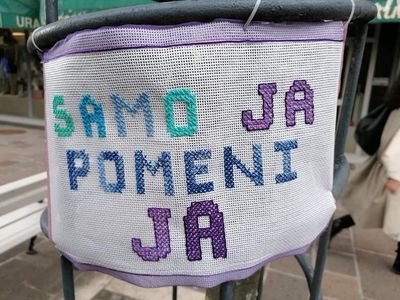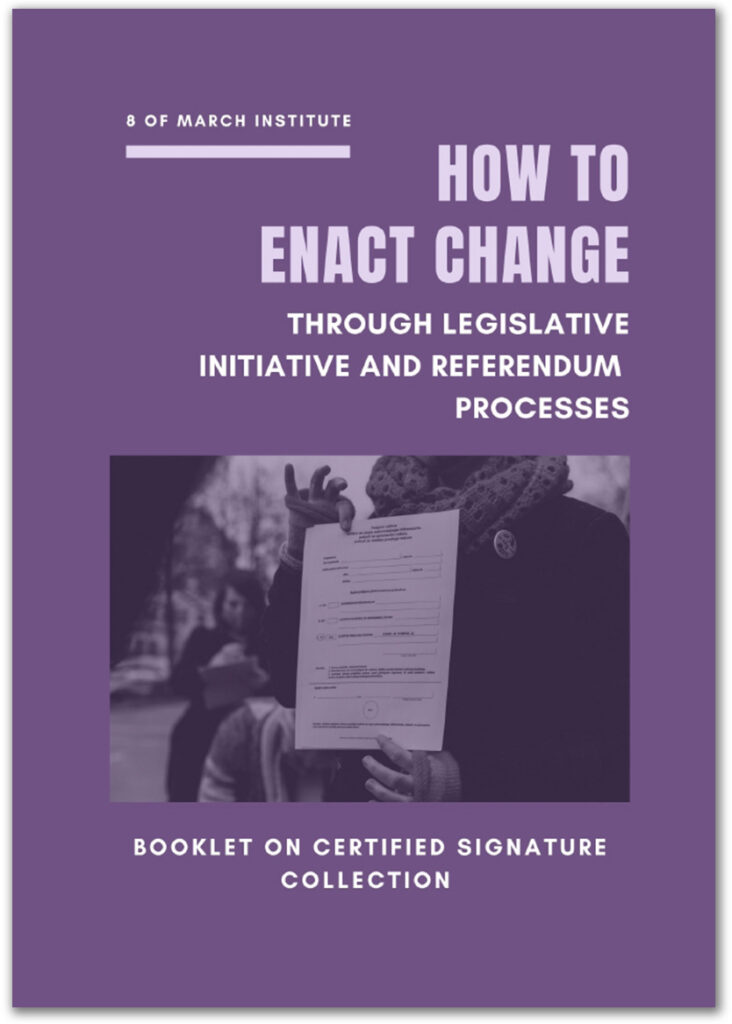In two successful left campaigns, the Institute of 8 March (Slovenia) has managed to effectively mobilise people to finally bring about legislative change. Supported by transform! europe, in this publication, the activists describe the steps in their remarkable success, the obstacles along the way and how they overcome them.
The first of these campaigns led to a major social shift towards greater protection for victims and the breaking of the silence that accompanies sexual violence; the second prevented the new Water Law from being passed, which would have broadly enabled private constructions on protected coastal and water lands.
Please find the eBrochure on the right/below (mobile version) in ‘Documents’ (English, Slovenian, PDF).

‘Only Yes Means Yes’
The campaign started by collecting stories of sexual abuse and sexual harassment in Slovenia in 2018. The Institute of 8 March stressed the issue of abuse of power and the re-victimisation of the victim in criminal proceedings. After an analysis of the Slovenian Criminal Code and a thorough review of the existing law, their legal service drafted a proposed law at the end of 2020.
As a continuation of the Slovenian campaign #jaztudi (#metoo), which revealed society’s many failures in preventing sexual violence and sanctioning perpetrators, in February 2021 the feminist activists of the Institute of 8 March presented a proposal to change the legal definition of sexual violence and rape in the Criminal Code. In June 2021, the proposal was submitted by opposition parties and approved by a decisive majority in the National Assembly.
Further reading:
- #jaztudi, Slovenia (eBrochure)

‘For Drinking Water’
This campaign began as a petition against the harmful changes in the law and then turned into a referendum. The disputed changes in the law appeared in inter-ministerial coordination on the intiative of the Ministry of the Economy, and only after a 14-day public discussion. The government tried to prevent any intervention from the experts in the field and non-government organizations.
Therefore, through the collection of signatures for a referendum a professional, comprehensive, and in-depth public discussion of amendments to the Act was demanded and created. The movement ‘Za pitnovodo’ (For Drinking Water) became a broad and powerful environmental movement which brought together a wide variety of people and organisations and ended with the victory of civil society and the guaranteed protection of Slovenian waters.
Table of Contents
Legislative Initiative of Investing the Law on the Example of the Action “Only yes means yes”
Preparation of draft bill
Preparation for the collection of 5000 certified signatures
Begining of collecting the signatures
Counting submitted forms
Communication
Submitting the Bill to the National Assembly
Legislative procedure: three readings
Referendum Iniciative on the Example of Movement “Za pitno vodo”
Why we needed the referendum
Controversial procedure of legislation
Content
Beginning of collecting the signatures
Collection and recording of signatures
Communication
Referendum
Criticisms and complications of the referendum
The results
